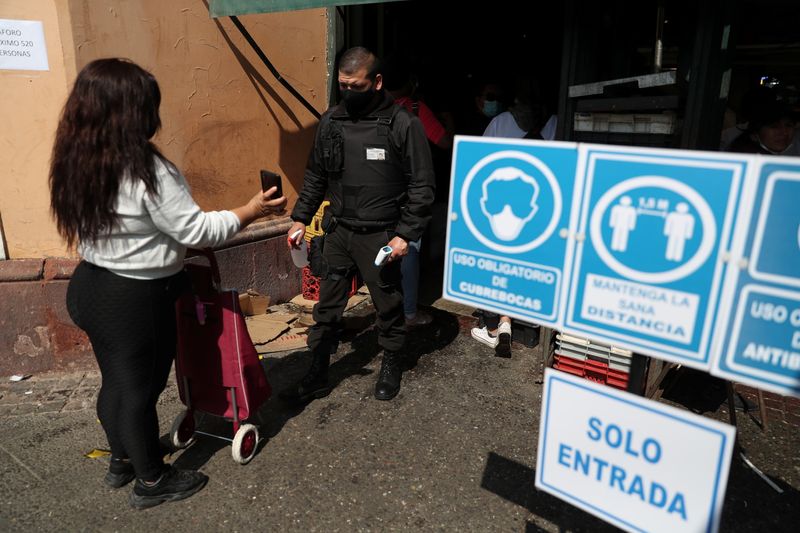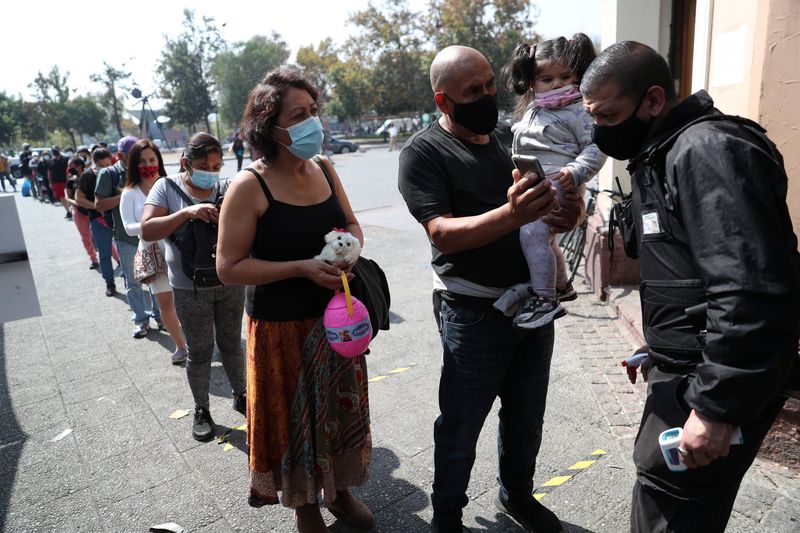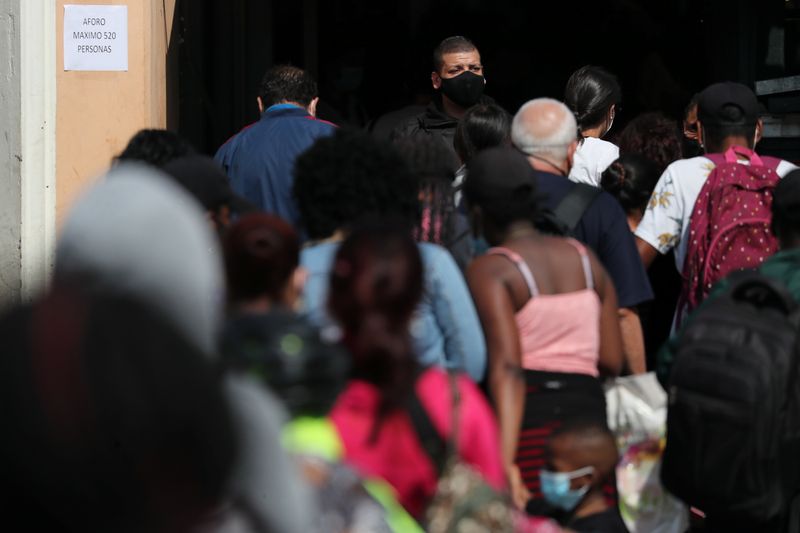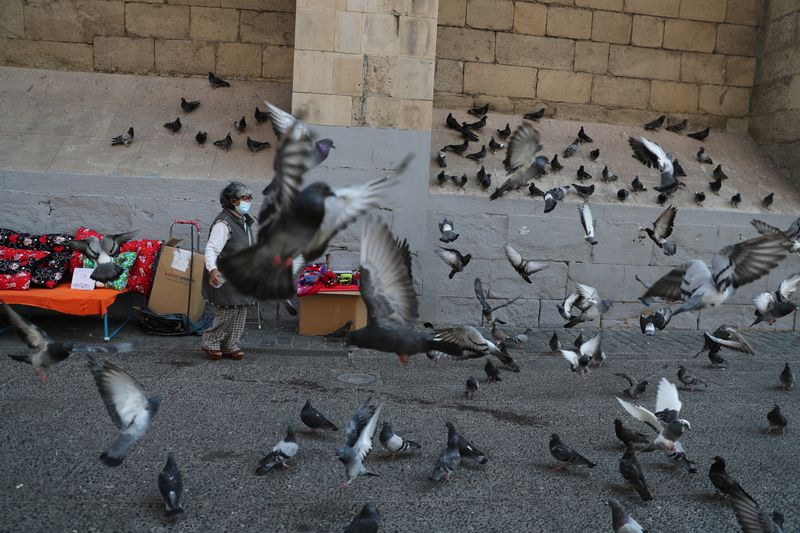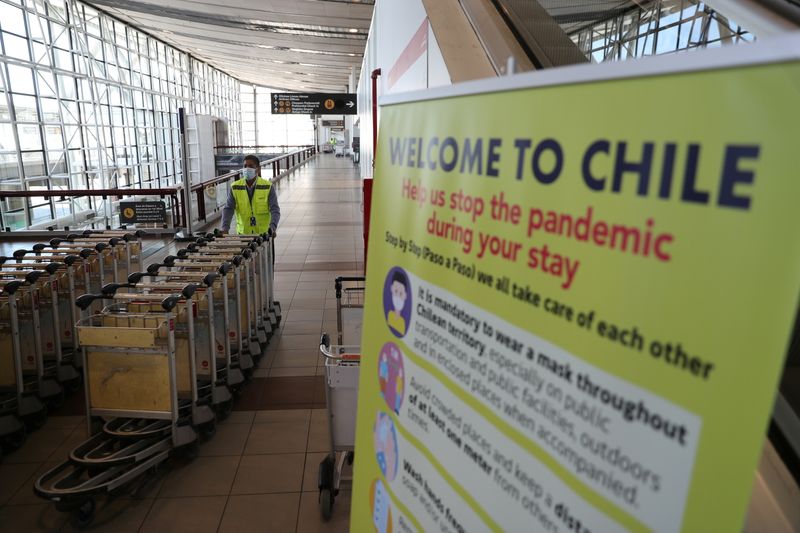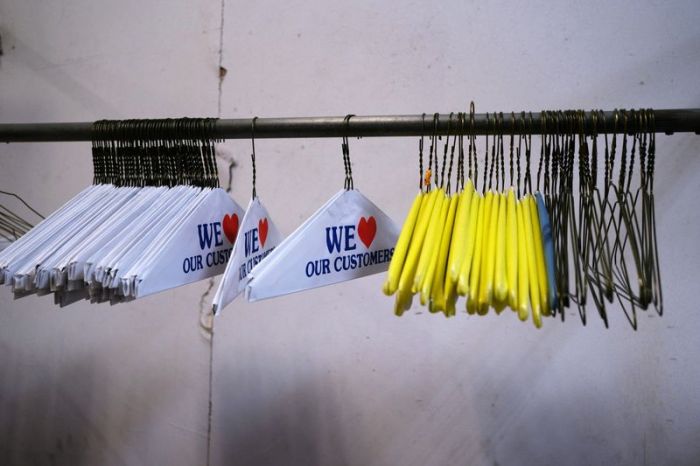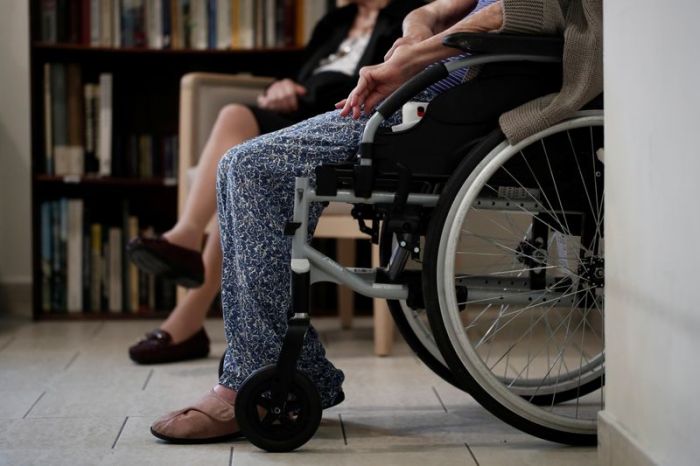SANTIAGO (Reuters) -Chile closed its borders and tightened an already strict lockdown further on Thursday to slow the spread of the coronavirus and stop the influx of contagious new variants as cases climbed past 1 million despite one of the world’s fastest vaccination rates.
The dramatic move came as hospitals warned they were close to saturation with middle-aged and younger victims of the disease as cases have spiked in recent weeks following the Southern Hemisphere summer holidays.
Chile struck early deals with vaccine makers Pfizer and Sinovac, and has already vaccinated more than 35% of its population, ranking it third in the world for inoculations per capita, according to a Reuters tally.
But a second wave hit before the country could reach a goal of herd immunity by July.
On Thursday, the country reported 7,830 cases of the virus, its highest single-day tally, adding up to a total of 1,003,406 infections, since the pandemic began in March 2020.
The caseload has prompted Chile to delay elections due on April 11 and resulted in accusations by health experts that the government allowed the triumph of its vaccination program to muddy its message, resulting in citizens dropping their guard – a claim angrily rejected by Health Minister Enrique Paris.
Movement restrictions have been swiftly ramped up, with more than 80% of the country of 19 million people now in lockdown to ease pressure on near-saturated urgent care wards.
On Thursday, Officials said they would close the South American country’s border for a month beginning on Monday to both Chileans and foreign residents, with exceptions only in emergencies. No foreign tourists will be allowed to enter – the first time it has taken the extreme measure since the early days of the pandemic in March 2020.
Authorities also ratcheted up restrictions on movement inside Chile, banning purchase or delivery of non-essential goods like toys, clothes or electronics, including from supermarkets, limiting circulation permits to a small group of essential workers – primarily supermarket and medical staff – and restricting authorizations for people to leave their homes.
Previous measures which granted a large number of companies “essential work” status and their staff permission to move around, and permits allowing citizens to take a trip during the summer holidays, have been blamed by medical experts for contributing to the spike in cases.
Locals also trade anecdotes and the media carries stories about people misusing permits to variously attend parties, go to beach houses and on fishing trips.
Government spokesman Jaime Bellolio implored all Chileans to take the rules seriously.
“It is now when we can save lives, when we need to take extreme care,” he said. “This is a national mission, each of us has a duty within our family group and those close to us to stress the urgency of being responsible now, today. Tomorrow may be too late.”
The vaccination program has resulted in a tailing off of hospital admissions among people in their 60s and 70s, but they have been replaced by a growing number of people in their 40s and 50s, health ministry figures show.
To date, just over 100 of the more contagious variants of the virus such as P1, which originated in Brazil, have been detected in Chile, but intensive care unit doctors say they could be behind the changing face of their patients.
Carlos Romero, head of the intensive care unit at the University of Chile’s clinical hospital in Santiago, told Reuters he was seeing patients in their 30s without pre-existing conditions die of COVID-19.
He said restricting movement was critical until more was known about the variants and the power of vaccines to quell them.
“If young people are more active, they are also more exposed,” he said.
(Reporting by Dave Sherwood and Aislinn Laing; Editing by Franklin Paul and Jonathan Oatis)

